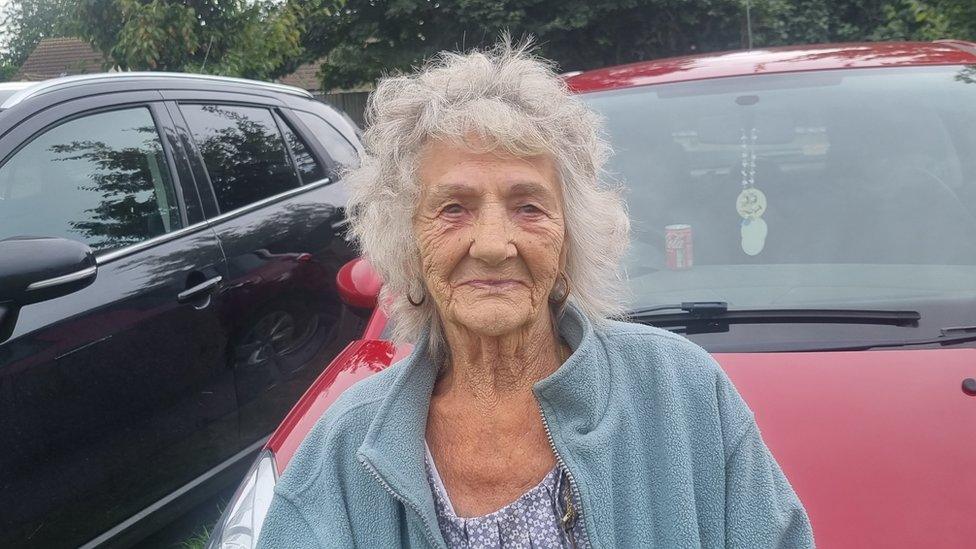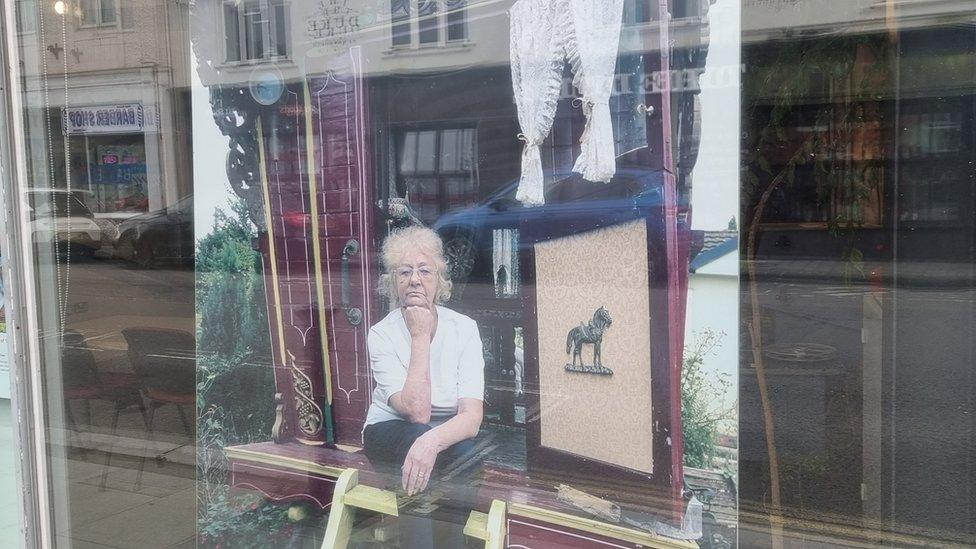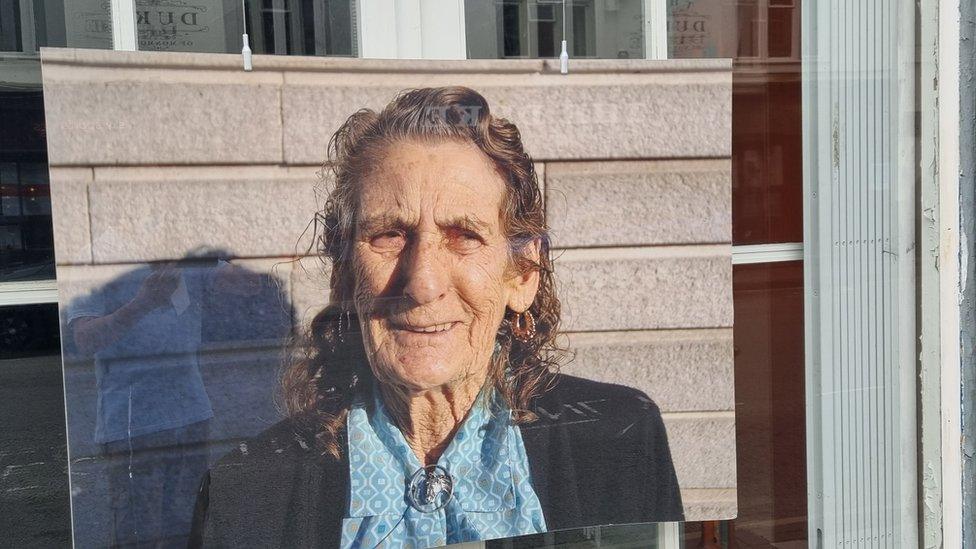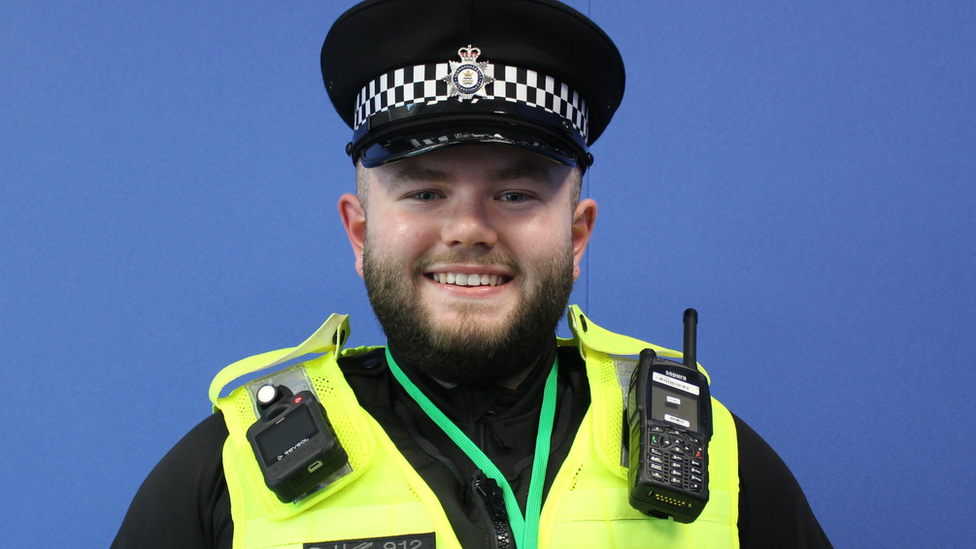Travellers stories told in Bridgwater exhibition
- Published

Maggie Smith-Bendell's life is being depicted in an exhibition on the traveller community in Bridgwater
Stories from travellers growing up on the road are being presented in a Somerset exhibition.
90-year-old Maggie Smith-Bendell's life is being told in Born in the Wheel of a Wagon: Life and Leisure on the Road, a free exhibition, at the Engine Room cafe in Bridgwater.
Featuring the words of older travellers, the presentation coincides with the annual Bridgwater Fair.
Ms Smith-Bendell said: "The old days were the better days."
"It was hard. We had to search for work - field work, pea picking, hop picking, potatoes... you name it."
The exhibition, curated by Yvette Staelens and Avril Silk, features recorded interviews, photographs by Ted Franklin and a book produced by MA museum studies students from Bournemouth University.

The exhibition features recorded interviews and photographs of the older members of the South-West traveller community
Ms Smith-Bendell, who was one of eight children and was born at the edge of a pea field, said the community looked after each other and remembered a time where all the wagons came together to feed a family struggling to get by, while parked up near Radstock.
"There was about 20 wagons pulled up... One had a bad time and they were very poor and they didn't have a great deal to eat.
"I remember my mother, she only had one loaf of bread, that's all she could get, and she cut the loaf in half and the next wagon cut some more bread off, cheese, and a bit of rabbit stew... and it went to this family.
"It was a normal thing to do. It wasn't done to be known. That's how we were back then - share and share alike," she added.
She said by the time she was three, Ms Smith-Bendell was helping her parents pick on the pea fields and hop gardens - and she credits them for her worth ethic.
"We would work on a morning. On the pea field we would pick a bucket full of peas and then we would be allowed to play."

The exhibition features photographs by Ted Franklin
"It was all education for our future. If you don't work, you don't get," she added.
Ms Smith-Bendell said while Somerset was their home, they would often travel to Wiltshire, Oxford and Ledbury in their wagon that smelt of "mansion polish and dried elder blossom".
She said the evenings would be spent gathered around the fire chatting "about old times, old tells" and listening to the Archers on their "wireless with a accumulator".
'Hiding identity'
"We didn't miss nothing because we never had nothing, " she said.
On what it is like for the community now, Ms Smith-Bendell said a lot has changed and children in the community often do not know about their heritage or history - over fears of hostility.
"A lot of Romany are now are hiding their identity.
"They're getting violence in schools. If they use Romany words that the settled community don't understand then they will find out they are gypsy. It's sad.
"In today's society we've got to hide our identities because of the hostility and the children suffer from it," she added.
The exhibition will be on display until October 1.

Follow BBC West on Facebook, external, X, external and Instagram, external. Send your story ideas to: bristol@bbc.co.uk , external
Related topics
- Published5 March 2023

- Published13 April 2023
